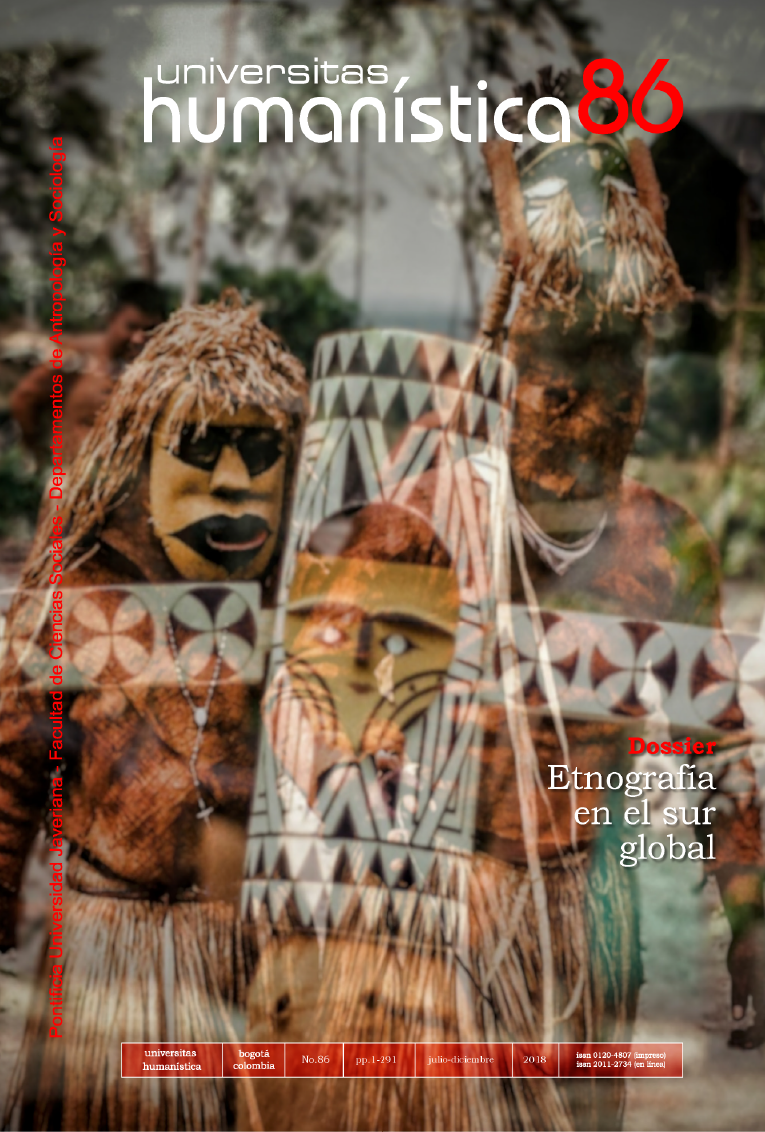Epistemic-corporal workshops as reflexive tools on ethnographic practice
##plugins.themes.bootstrap3.article.details##
The key concepts of the anthropology of the Global South and the feminist epistemologies have allowed new reflections on ethnographic practice. From this framework, we would like to propose workshops as privileged methodologies for achieving a “strong reflexivity” on the ethnographic practice that is also collective and embodied, and not just focused on knowing what, but knowing how, and on aspects of research that are traditionally discarded. In the article, we combine the descriptions of the workshop exercises, the collective reflections emerged from them, and three theoretical artifacts for their analysis: the “corporal practices in research”, the “committed articulation” and the “off-field epistemologies”. As a result, we analyze the role of the body and the emotions in the process of researching, the networks and bonds that are generated, the aspects involved in our commitment to these processes; the power relations and the different forms of epistemic violence in research practice; the dilemmas, the meetings and misunderstandings between research and activism.


